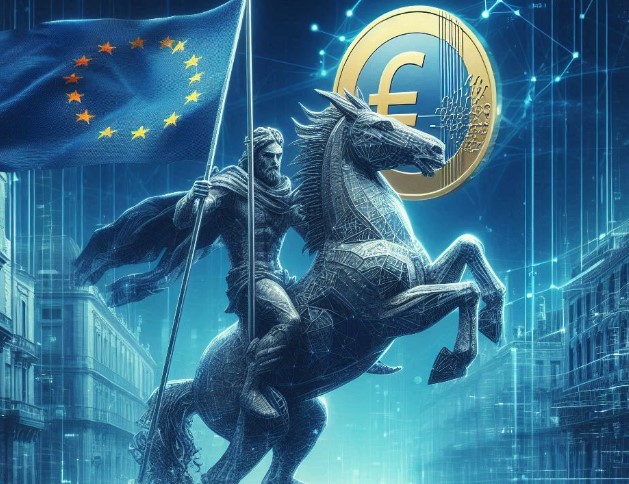The Bank of Spain has awarded its third major contract to support the launch of the digital euro, a project the European Central Bank (ECB) intends to accelerate in order to mitigate the effects of the trade war initiated by President Donald Trump. The national authority recently published a call for tenders for services to accelerate and implement agile methodologies in the development of the single digital currency.
The estimated value of this contract could reach €6.2 million, with bids due by May 25. The Bank of Spain is seeking specialized companies to carry out this necessary work to ensure the smooth launch and subsequent operation of the digital euro in Spain.
This is the third major contract awarded by the institution under the leadership of José Luis Escrivá. The ECB has been working at an accelerated pace since the beginning of April, after Indra was awarded the IT services for the currency’s development, valued at €3.63 million, through a framework agreement (without a public tender). In addition, a tender for a consulting firm that could provide support in this matter is still open, with a value of up to €58 million.
The total value of these contracts could reach €70 million. The Bank of Spain justifies this amount given the need for a successful launch of the digital euro once all relevant authorities give the green light for its circulation. The ECB is putting pressure on Brussels and the European Parliament to approve the necessary regulatory framework.
Although the ECB has not yet set a date for the launch of the digital euro in Europe, several executives, including Chief Economist Philip Lane, are advocating for accelerated implementation. Lane emphasizes that the eurozone needs a currency with these characteristics to counter the dollar and its satellite currencies and to curb the dominance of US payment systems promoted by tech giants.
The ECB Governing Council is expected to decide on the next steps for the project in November, including details on the design and development of the technology platform. However, an earlier schedule could be considered, provided there is a supporting regulation.
Against this backdrop, the Bank of Spain has created an organization of experts from various fields. In the latest call for tenders, the national authority is seeking a company capable of stimulating and implementing agile methods to support the digital euro. The call for tenders has an initial duration of two years, beginning on October 15, with the possibility of an extension for a further three years.
The documents indicate that there is an estimated need for these services of at least 5,280 hours per year, which the internal units cannot cover. For this reason, the search for a specialized company began at the end of April.
Piero Cipollone, a member of the ECB’s Executive Board, appeared before the European Parliament’s Committee on Economic and Monetary Affairs before Easter and called on MEPs to take action. “It is crucial to make progress now on legislation for the digital euro,” he said, noting that “the consequences of inaction are becoming increasingly clear” and that “a delay would slow our collective response to these risks.”
The fundamental characteristics of the digital euro include the ability to operate without a network connection and offering users a high level of privacy once it is in circulation. A key concern is the fear that monetary authorities could gain access to citizens’ spending. For this reason, many experts consider it extremely important that cash be preserved and guaranteed. Both the Bank of Spain and the ECB emphasize that the digital currency does not aim to eliminate cash, but rather represents a viable alternative in the context of technological development and digitalization.




